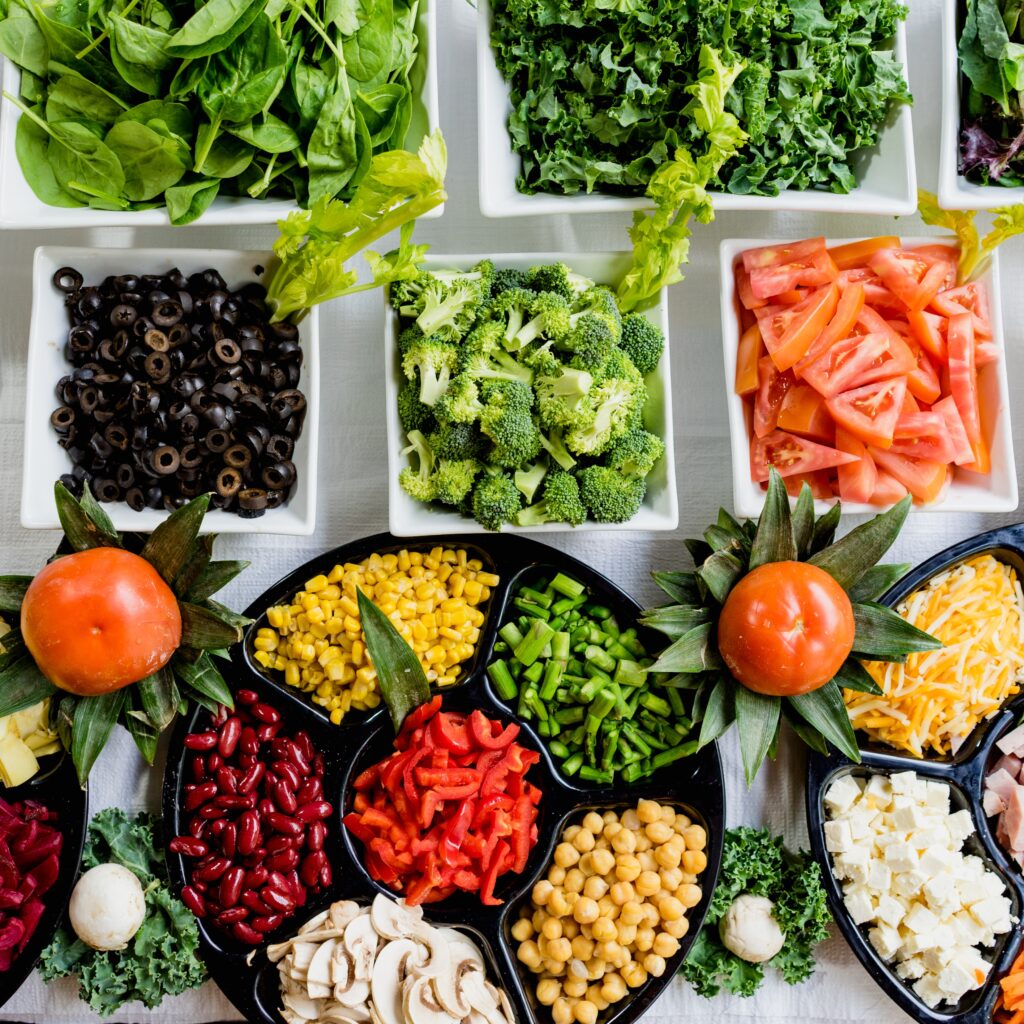Nutrition plays a vital role in brain function and staying sharp into the golden years. The foods you eat play a role in brain health and can improve specific mental tasks, such as memory and concentration.
You already know that eating certain foods can help you lose weight and lower your risk of diabetes and heart disease, but eating a healthy diet can also keep your brain sharp. The foods we eat can have a big impact on the structure and health of our brains. Eating a brain-boosting diet can support both short- and long-term brain functions. This article lists 11 foods that stimulate your brain.
Table of Contents
- 1- Whole Grains
- 2- Lentils
- 3- Oats
- 4- Pumpkin seeds
- 5- Broccoli
- 6- Spinach
- 7- Tomatoes – An Excellent Source of Lycopene
- 8- Oily fish
- 9- Eggs
- 10- Walnuts & Almonds
- 11- Dark chocolate
1- Whole Grains
Whole grains are rich in fiber and are also considered to be foods that help with memory and concentration. These are also loaded with essential minerals and nutrients. The fiber present in whole grains helps lower the risk of cognitive impairment which leads to Alzheimer’s disease. Whole grains also help in reducing oxidative stress, inflammation, blood pressure, and many other cardiovascular disorders that increase the risk of heart and brain diseases.
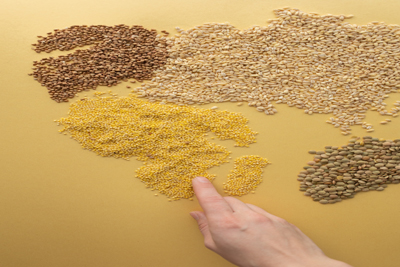
2- Lentils
Make lentils a staple in your soups and salads and your brain will thank you for it. Lentils are packed with folate, a B vitamin is shown to help boost cognitive performance. The vitamin can also play a role in decreasing levels of the amino acid homocysteine. This is important because too-high levels may impair brain functioning as you age.

3- Oats
For a brain-boosting breakfast, you can’t go wrong with whole-grain oats. The brain relies on glucose for fuel, and healthy carbs like oats are a great source. Oats have an advantage over other carbohydrates in that they’re low on the glycemic index—meaning oats Won’t jack up your blood sugar as quickly as some other foods. In fact, in part thanks to their fiber content, whole-grain oats are broken down slowly by the body. Your brain will reap the benefits for hours. Oats also contain B vitamins, iron, and magnesium.

4- Pumpkin seeds
Pumpkin seeds contain powerful antioxidants that protect the body and brain from free radical damage. They are also an excellent source of magnesium, iron, zinc, and copper. Each of these nutrients is important for brain health:
Zinc: this element is crucial for nerve signalling. Zinc deficiency has been linked to many neurological conditions, including Alzheimer’s disease, depression, and Parkinson’s disease.
Magnesium: Magnesium is essential for learning and memory. Low magnesium levels are linked to many neurological diseases, including migraines, depression, and epilepsy.
Copper: Your brain uses copper to help control nerve signals. And when copper levels are out of control, there is an increased risk of neurodegenerative disorders, such as Alzheimer’s.
Iron: Iron deficiency is often characterized by mental confusion and impaired brain function.
However, since pumpkin seeds are high in these micronutrients, you can likely reap their benefits by adding pumpkin seeds to your diet.
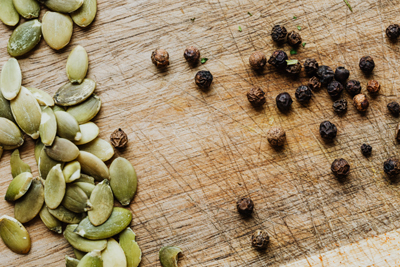
5- Broccoli
Broccoli is a great source of vitamin K, which is known to enhance cognitive function and improve brainpower. Broccoli is high in compounds called glucosinolates, it can slow the breakdown of the neurotransmitter, acetylcholine, which we need for the central nervous system to perform properly and keep our brains and memories sharp. Low levels of acetylcholine are associated with Alzheimer’s. Other cruciferous veg is rich in glucosinolates include cauliflower, kale, cabbage, and Brussels sprouts, whilst you can obtain vitamin K from the liver, hard cheeses, and prunes.

6- Spinach
Like most green leafy vegetables, spinach is also perfect for both physical and mental health. Spinach is packed with Vitamin K, which is deemed the best Vitamin for memory and focus. It is also observed that spinach can help in slowing down the decline of memory and cognitive abilities in adults. Spinach is also rich in Vitamin A which helps in reducing inflammation of the brain cells.

7- Tomatoes – An Excellent Source of Lycopene
Tomatoes are the source of a powerful antioxidant called lycopene. This antioxidant helps in reducing cell damage that may lead to Alzheimer’s and dementia. Lycopene can also help prevent depression, which can cause further inflammation in the brain. Additionally, tomatoes, especially cherry tomatoes, contain a nutrient called carotenoids. These nutrients help in improving cognitive abilities and promoting memory capacity.
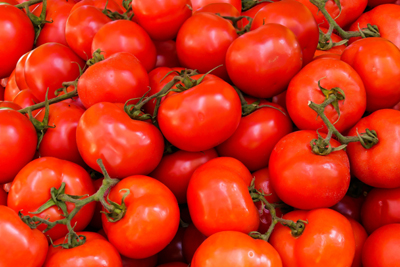
8- Oily fish
The human body cannot produce the essential fatty acids that are important for brain health. This is why you need to either consume supplements or maintain a diet that contains these fatty acids. One of the best foods that contain the essential fatty acids is salmon. Salmon is a type of fish that contains significant amounts of omega-3, EPA, and DHA. Omega-3 fatty acids are known to keep the brain healthy and improve memory efficiently. This makes salmon one of the best foods to improve memory. If you’re vegetarian you may consider a plant-based omega-3 supplement from micro-algae. It’s worth remembering that vegetarian mums-to-be, or those who are breastfeeding, should consider a supplement because of the important role omega-3 fats play in the development of the central nervous system of your baby.

9- Eggs
Eggs are a good source of several nutrients related to brain health, including vitamins B6 and B12, folate, and choline. Choline is an important micronutrient that your body uses to create acetylcholine, a neurotransmitter that helps regulate mood and memory. However, many people do not get enough choline in their diet. Eating eggs is an easy way to get choline since egg yolks are among the most concentrated sources of this nutrient.

10- Walnuts & Almonds
Walnuts are a convenient food that’s good for your brain. They are great as a stand-alone snack, added to salads, sprinkled on hot cereals and casseroles, and so many other recipes.
Walnuts are rich in anti-inflammatory omega-3 fats & also have more antioxidants than any other type of nut. Both are considered critical brain foods that could beneficially influence cognition.
Almonds are a rich source of vitamin E, B vitamins, essential minerals – like calcium, magnesium, and potassium – and healthy fats. Also being sources of lean protein, they aid the body to repair brain cells thus helping to improve cognitive function and boost your memory and focus.
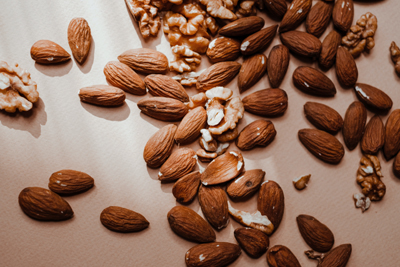
11- Dark chocolate
Dark chocolate and cocoa powder contain some compounds that stimulate the brain, including flavonoids, caffeine, and antioxidants. Flavonoids are a group of antioxidant plant compounds. The flavonoids in chocolate accumulate in the areas of the brain that deal with learning and memory. Researchers say that these compounds can improve memory and also help slow age-related mental decline.
Those who ate chocolate more frequently performed better on a number of mental tasks, including some related to memory, than those who rarely ate it. Chocolate is also a legitimate mood booster, according to research.

So, in this article, we have highlighted the Top 11 foods that improve your memory and concentration. They help in developing and enhancing various parts of your brain functions. Eat proper food and enhance your brain power don’t forget to comment!

